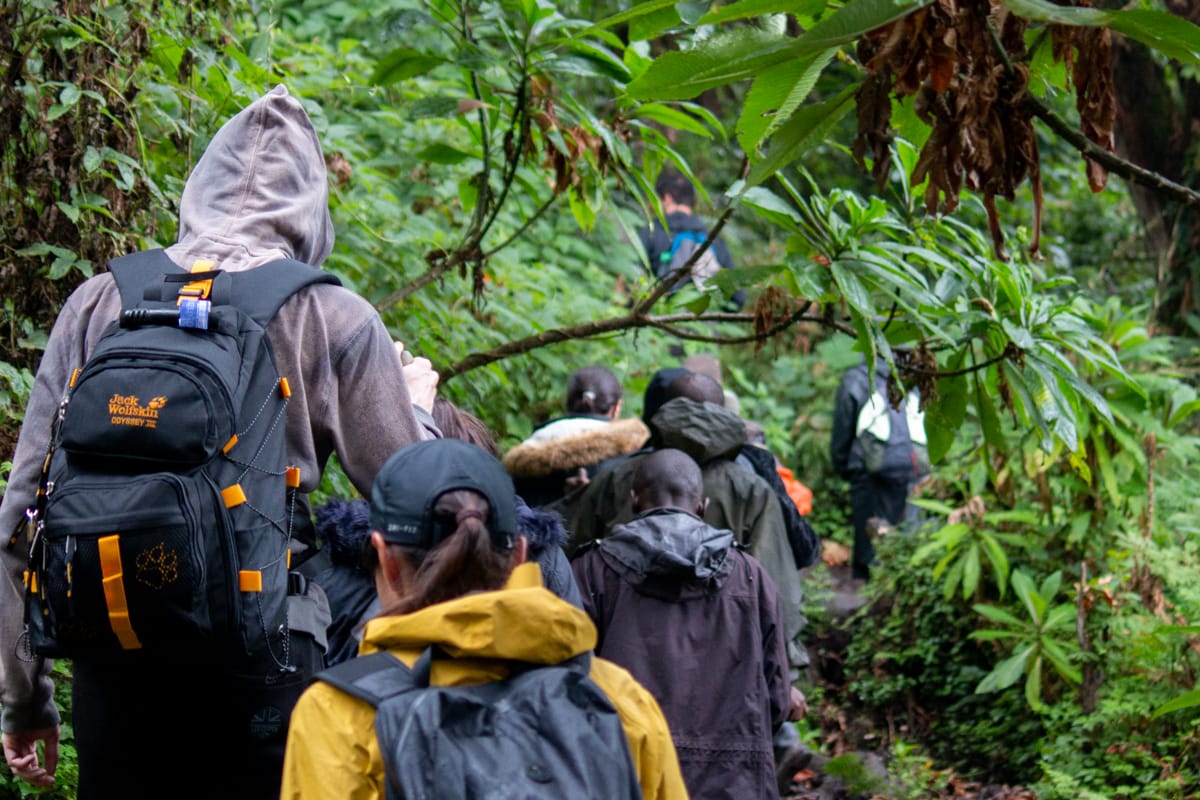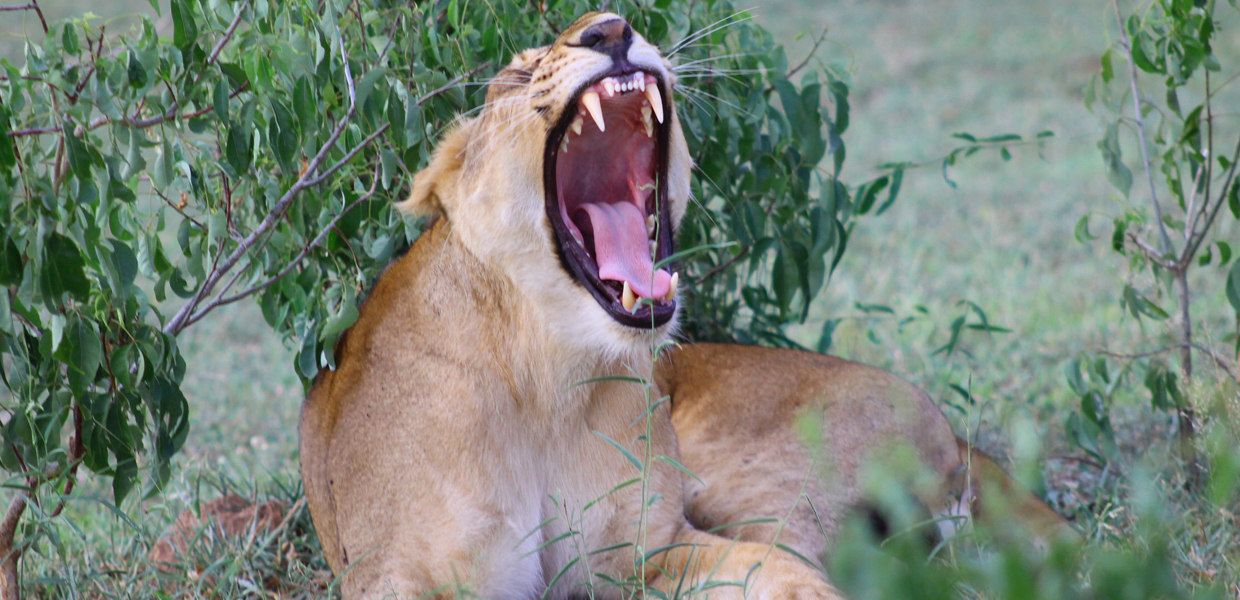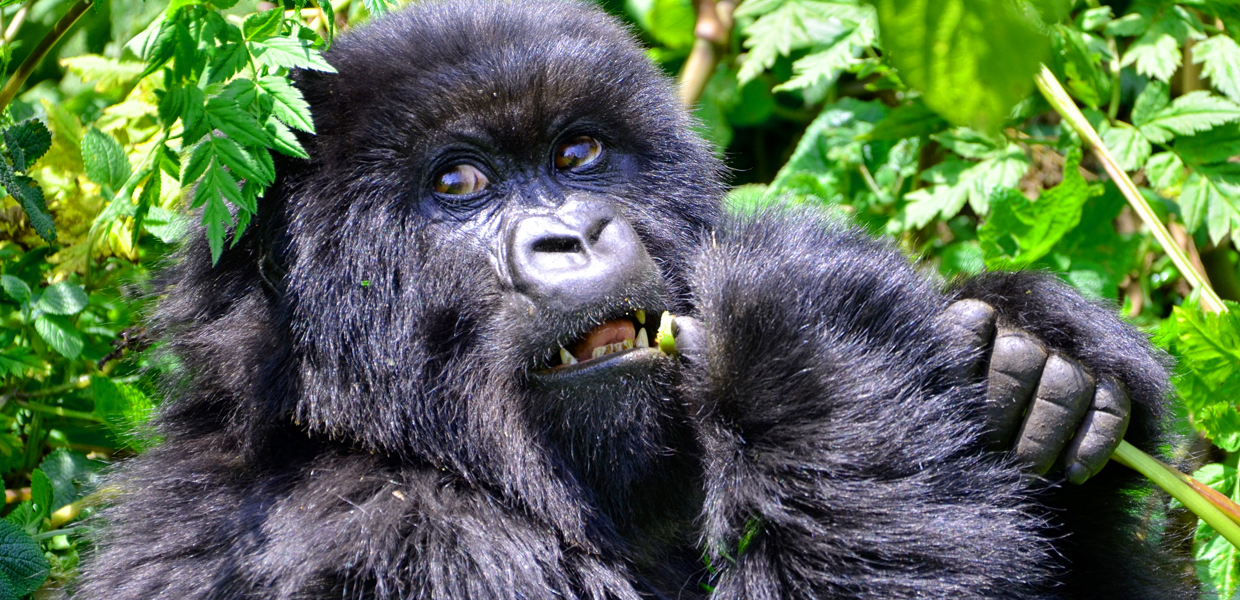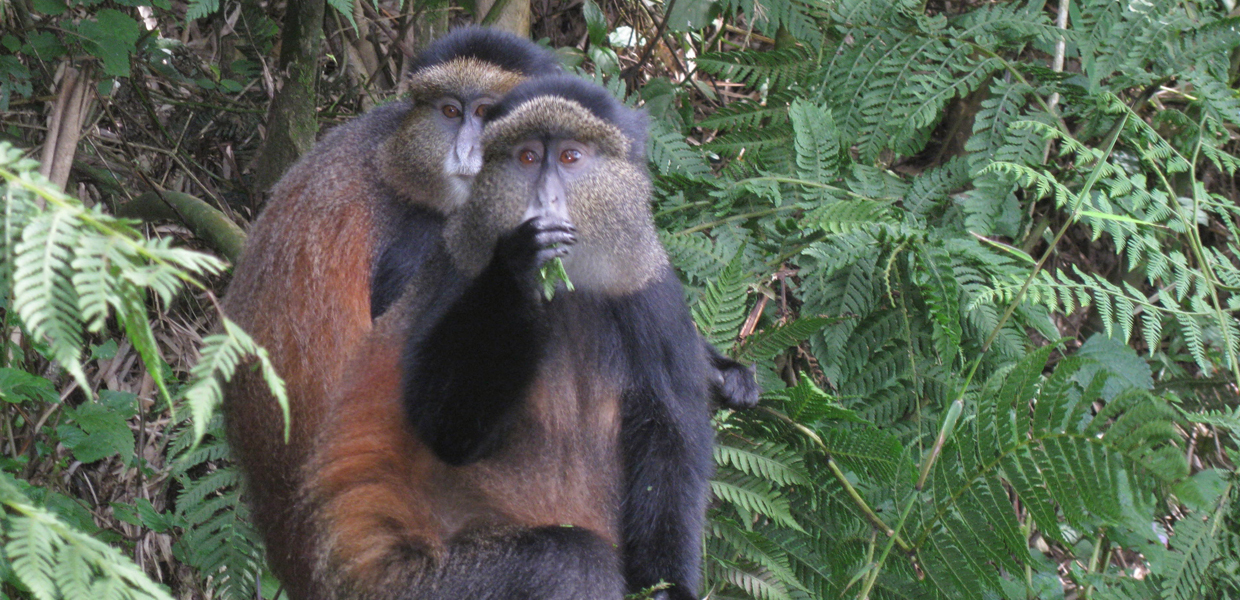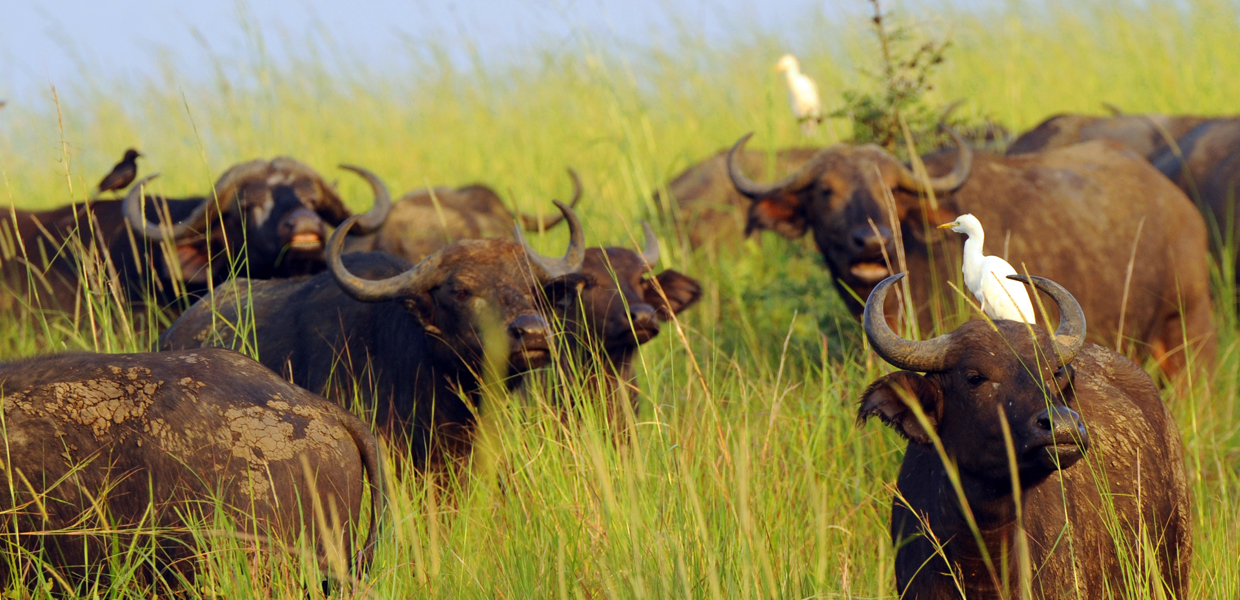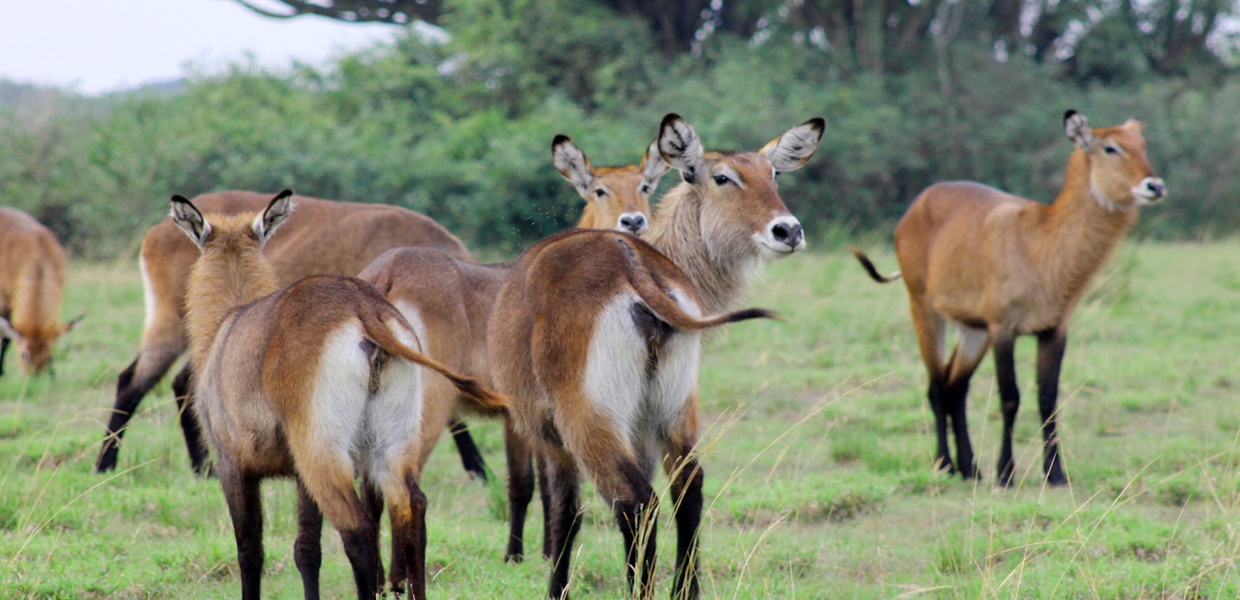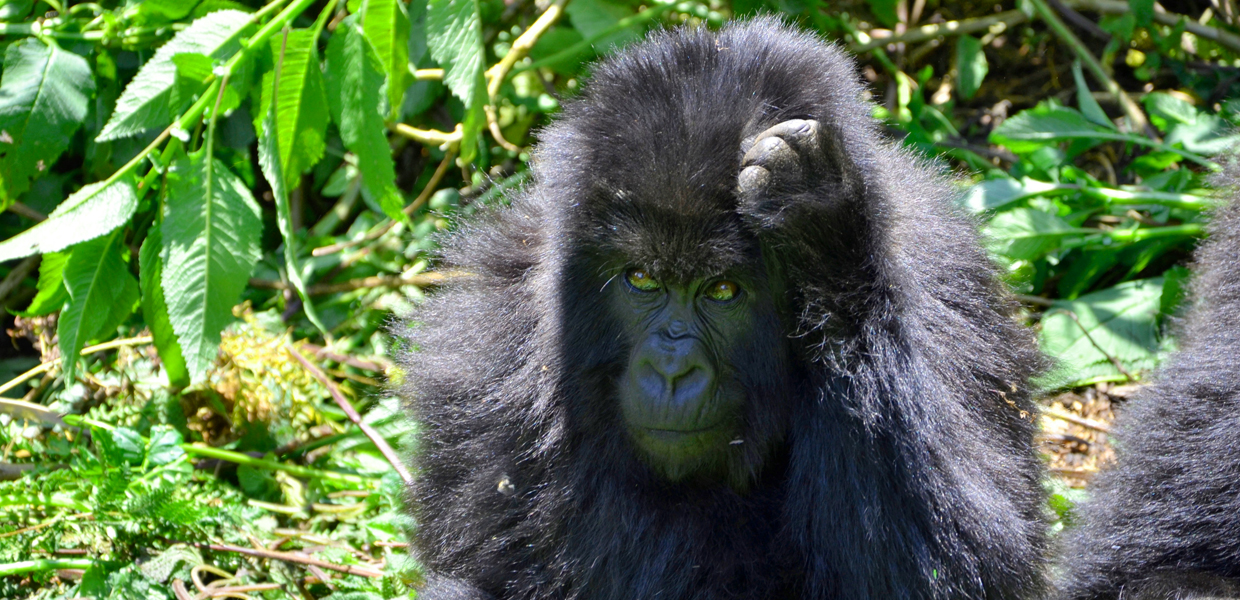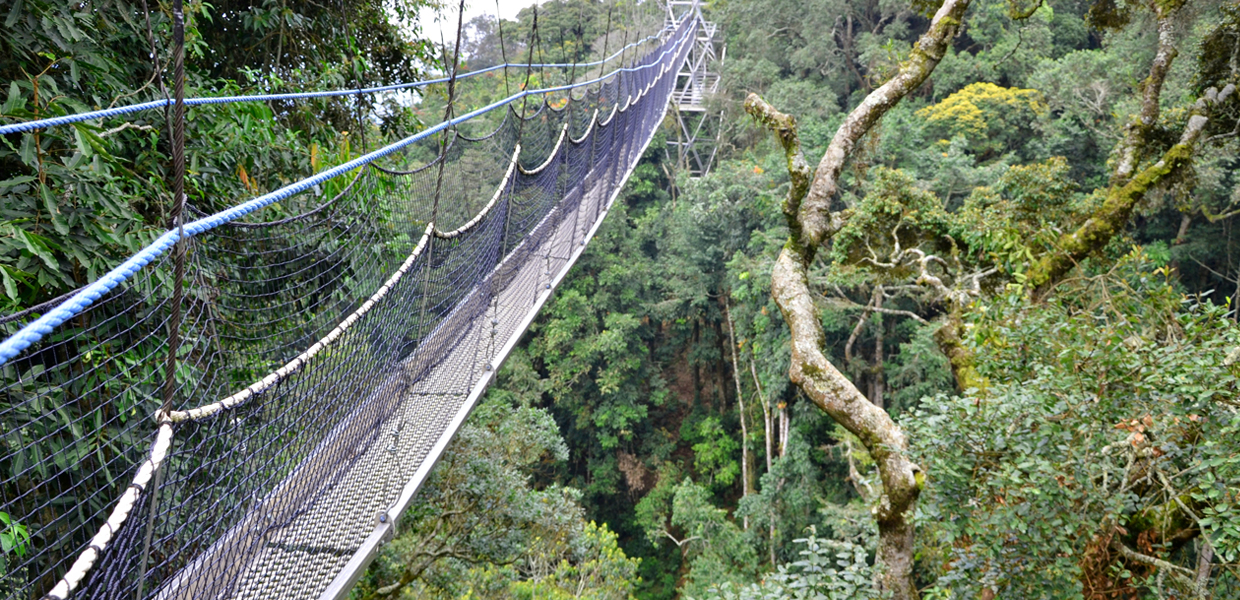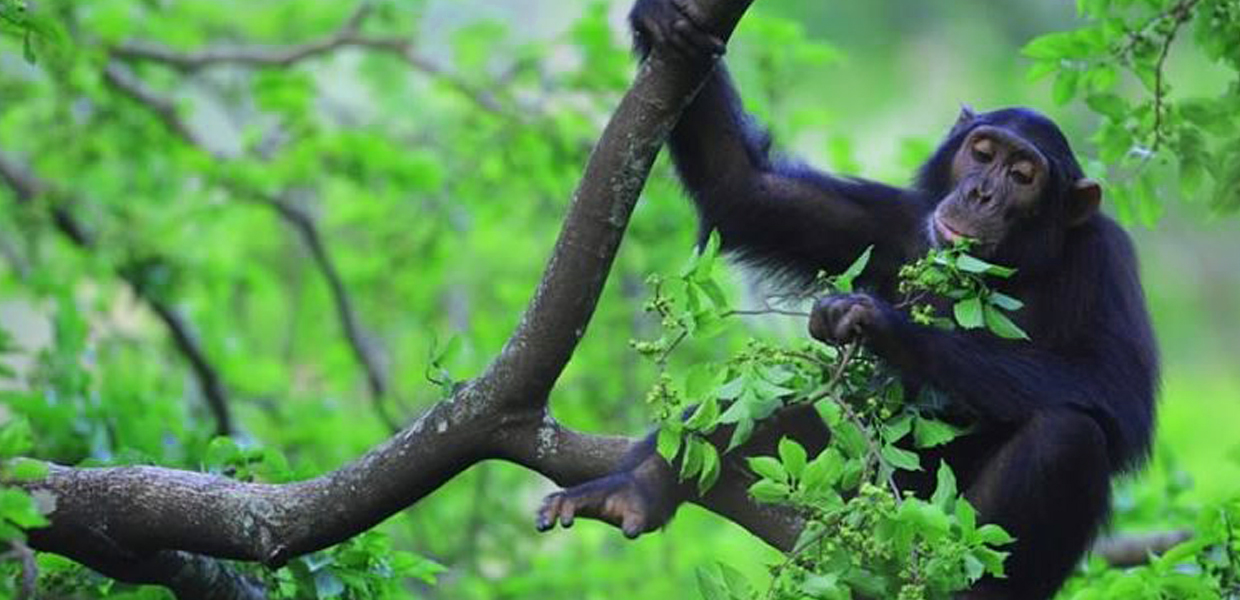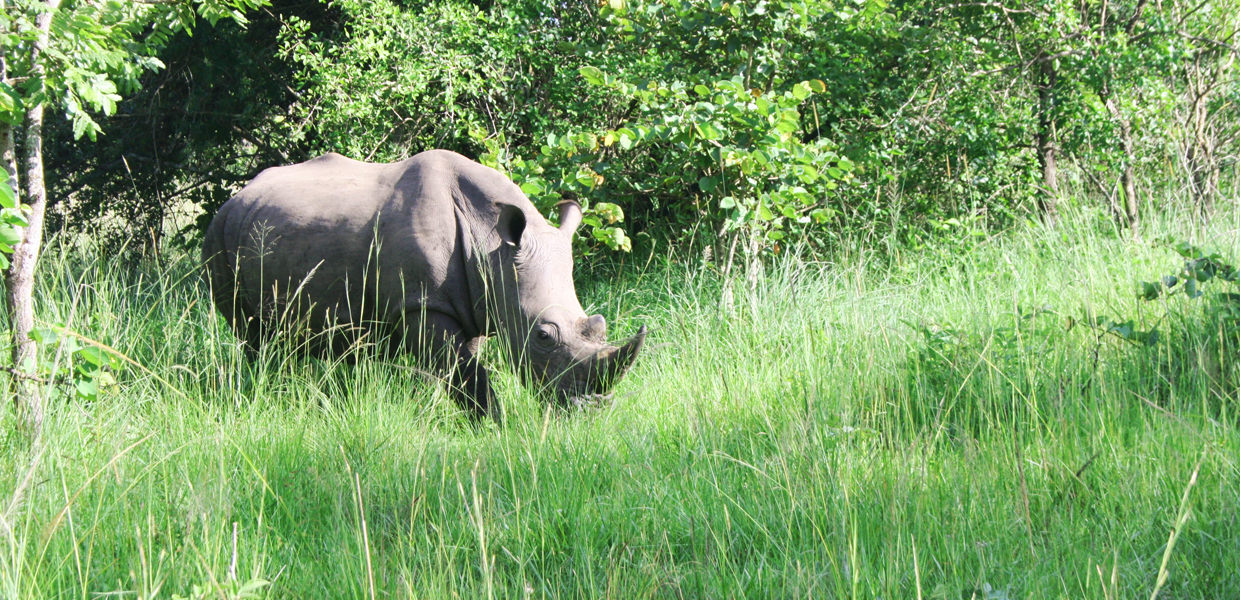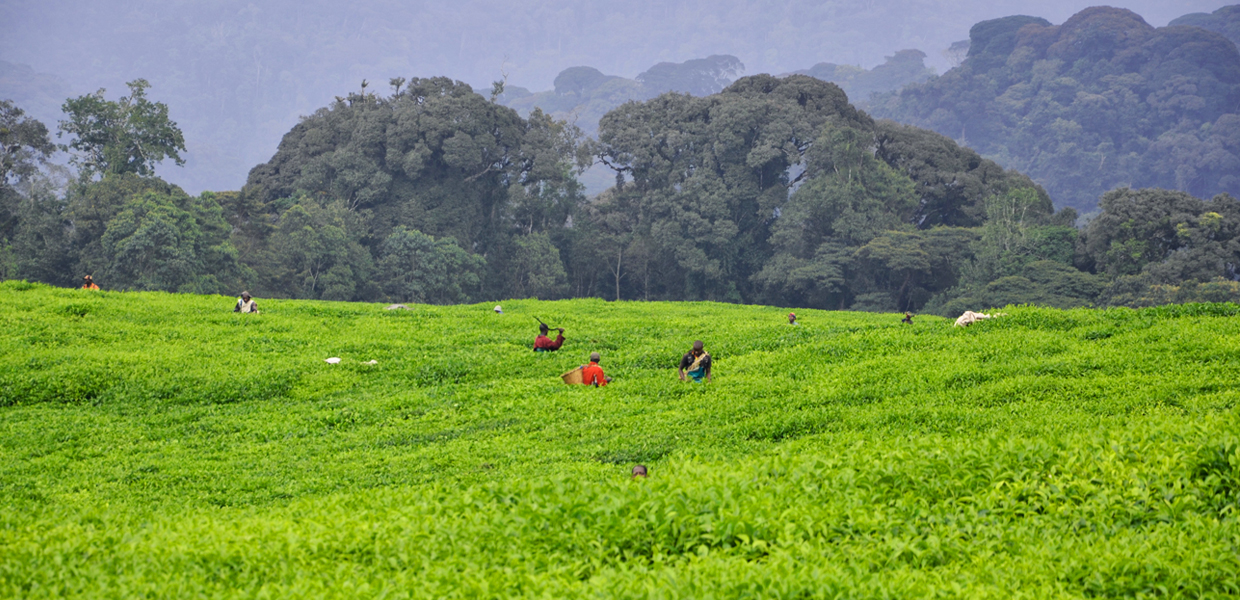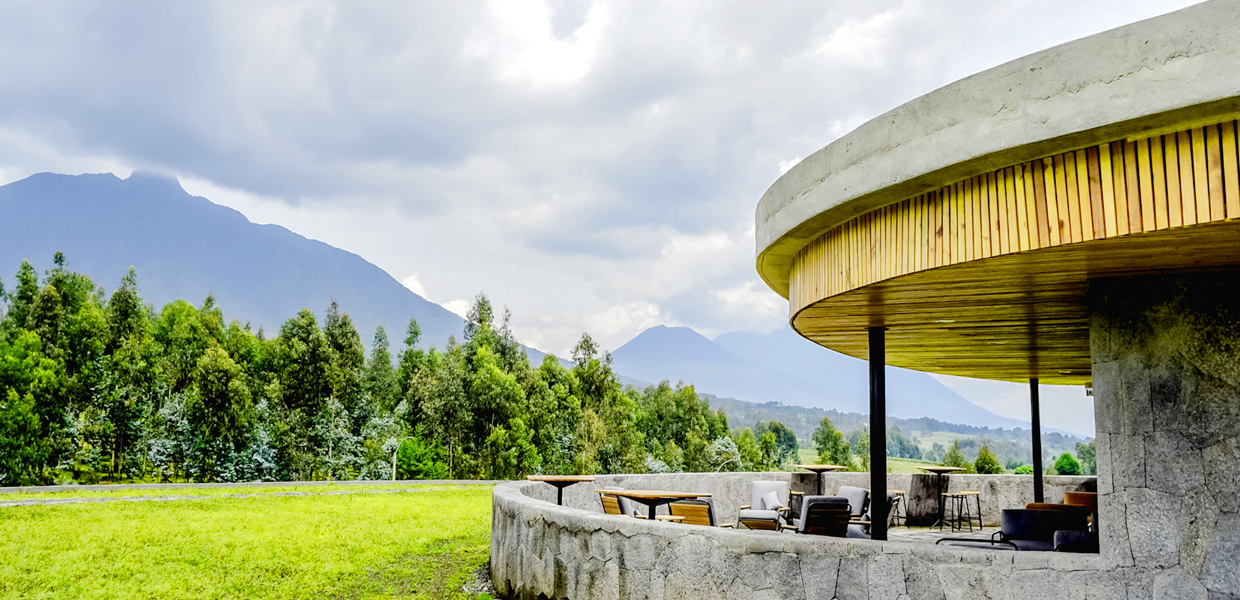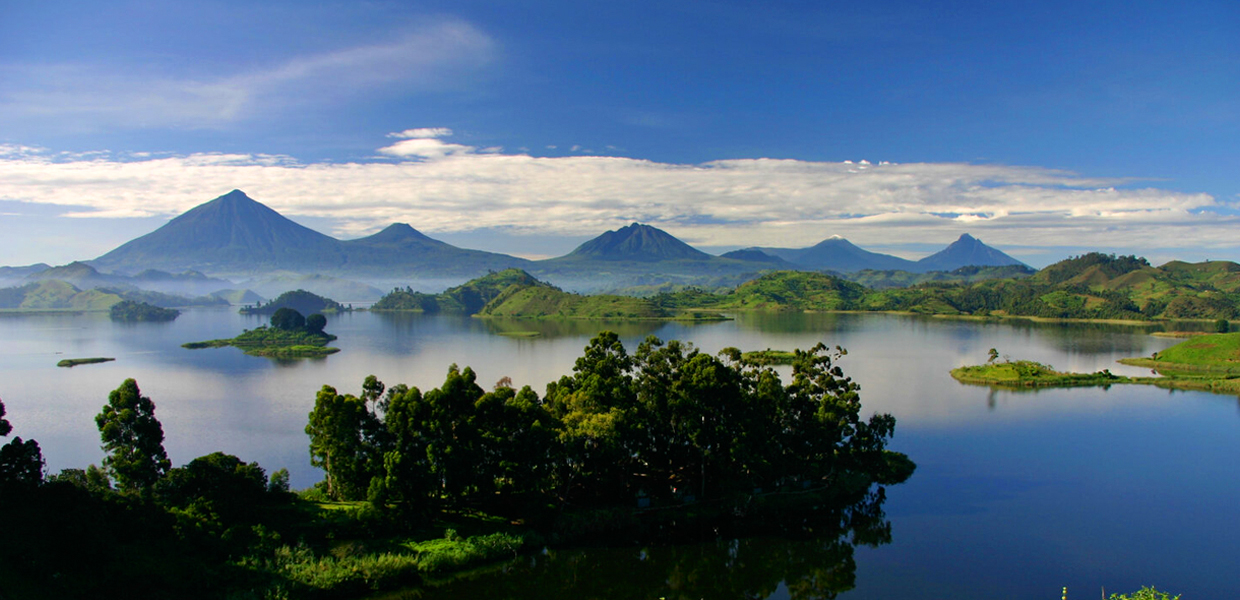Rwanda is one of the top safari destinations in Africa with a diverse landscape and rich cultural heritage. This small country, in the heart of Africa has achieved a social-economic progress during the last two decades after the 1994 Genocide. It is christened the “land of a thousand hills” due to its numerous rolling hills and mountainous landscapes across the country. You will expect breathtaking sceneries, diverse wildlife species, plethora of birds, rich history and culture and most importantly the friendly people who always greet strangers with wide smiles and always willing to help at any given opportunity.
Getting to and Around Rwanda
Kigali International Airport is the main gateway into Rwanda, although land borders can be accessed from the neighboring countries of Uganda, Tanzania and the Democratic Republic of Congo. The different Towns/Cities of Rwanda are connected by a network of well-maintained tarred roads, but smaller roads are mainly unsurfaced and become muddy, sometimes difficult to access during wet season.
Private 4X4 Safari Cars provided by Car Rental Companies and Tour Operators while public means like Buses and matatus (taxis) as well as motorbike taxis are popular throughout the country.
Best of Rwanda's Experiences
Best Lodges, Camps, Resorts and Hotels in Rwanda
More About Rwanda
With a land area of about 10,169 square miles, Rwanda is the 4th smallest in Africa’s mainland (after Gambia, Djibouti and Eswatini) and is also the 149th largest country in the World. Situated in the heart of Africa- East-Central Africa, Rwanda is one of the most popular safari destinations in the Continent and therefore a force for reckon with if you are yearning to experience magical and once in lifetime adventures.
Kigali is Rwanda largest and Capital City is set in the heart of the country and on the banks of mighty River Ruganwa. Burundi borders the land of a thousand hills to the south and Tanzania to the East. Also, to the west is the vast Democratic Republic of Congo while to the north is Uganda.
Rwanda’s climate is temperate Tropical highland whereby temperatures are slightly lower than it is in other Equatorial countries, mainly because of high altitudes. During the months of March, April, May, October and November, it is a rainy season in most parts of Rwanda but the average temperature is from 12˚C to 27˚C in Kigali City. During the months of January, February, June, July, August, September and December, it is generally dry and hot in Rwanda.
Rwanda’s time zone is UTC+2 (CAT).
Rwanda’s currency is Franc and is in coins (1, 2, 5, 10, 20, 50 and 100) as well as notes (in denominations of 500, 1000, 2000 and 5000). Foreign currencies, especially US Dollars are also accepted in luxury accommodation facilities and Super markets, National Park entry fees and activities. The acceptable payment methods in Rwanda include cash, credit/debit cards (Visas and MasterCard) as well as wire transfer.
Visas are required for travelers from some countries and if you are eligible for these requirements, you will pay something between $30 and $100 per person.
- The single entry conference visas cost $30 valid for 30 days.
- Single entry tourist visas cost $50 and are valid for 30 days.
- The East African tourist visa (guaranteeing multiple entry into Rwanda, Uganda and Kenya) costs $100 per person and is valid got 90 days.
- Multiple entry business visas cost $50 and are valid for one year.
Travelers are required to possess valid passports (valid for 6 months to date of travel) while applying for the Rwandan visa (of any category).
Kinyarwanda is the National language in Rwanda, while other official languages such as French, Swahili and English are widely spoken in the country.
About 85% of Rwanda’s 13, 640,585 population is Hutu, while 14% is Tutsi and only 1% is Twa and another 1% of other ethnic groups/people in Rwanda.
Heavy rains are experienced daily between the months of March and May as well as October and November. There is a Mediterranean type of vegetation along the shores of Lake Kivu and this is responsible for the sheer disparity in landscape, with the papyrus wetlands covering the Eastern boundary while the dense bamboo forests of Virunga Mountains occupy the northern parts of the country. The densely forested slopes of Virunga Volcanoes are home to the rare and endangered Mountain gorillas that are protected in Volcanoes National Park, also Rwanda’s most popular safari destination.
Akagera National Park is the only savannah-dominated National Park and only home to the big five game (Rhinos, lions, leopards, Cape buffaloes and African bush elephants), as well as the Masai giraffes, Grant’s zebras, Topis, Olive baboons, Roan antelopes, warthogs, impalas, Defassa waterbucks, Hippos, giant elands, Kobs, blue monkeys, duikers, bushbucks and others.
When you visit the extreme south-western side of Rwanda, you will be ushered to the montane forest- Nyungwe Forest National Park, home to about 80 mammal species that include 12 primate species such as chimpanzees, L’Hoests monkeys, blue monkeys, Angolan black and white colobus monkeys, red-tailed monkeys and many others as well as over 320 bird species, 23 of which are Albertine Rift endemics. Other must-visit safari destinations in Rwanda are the newly established Gishwati-Mukura National Park, Lake Kivu, Twin Lakes of Bulera and Ruhondo, the City of Kigali and many others.

